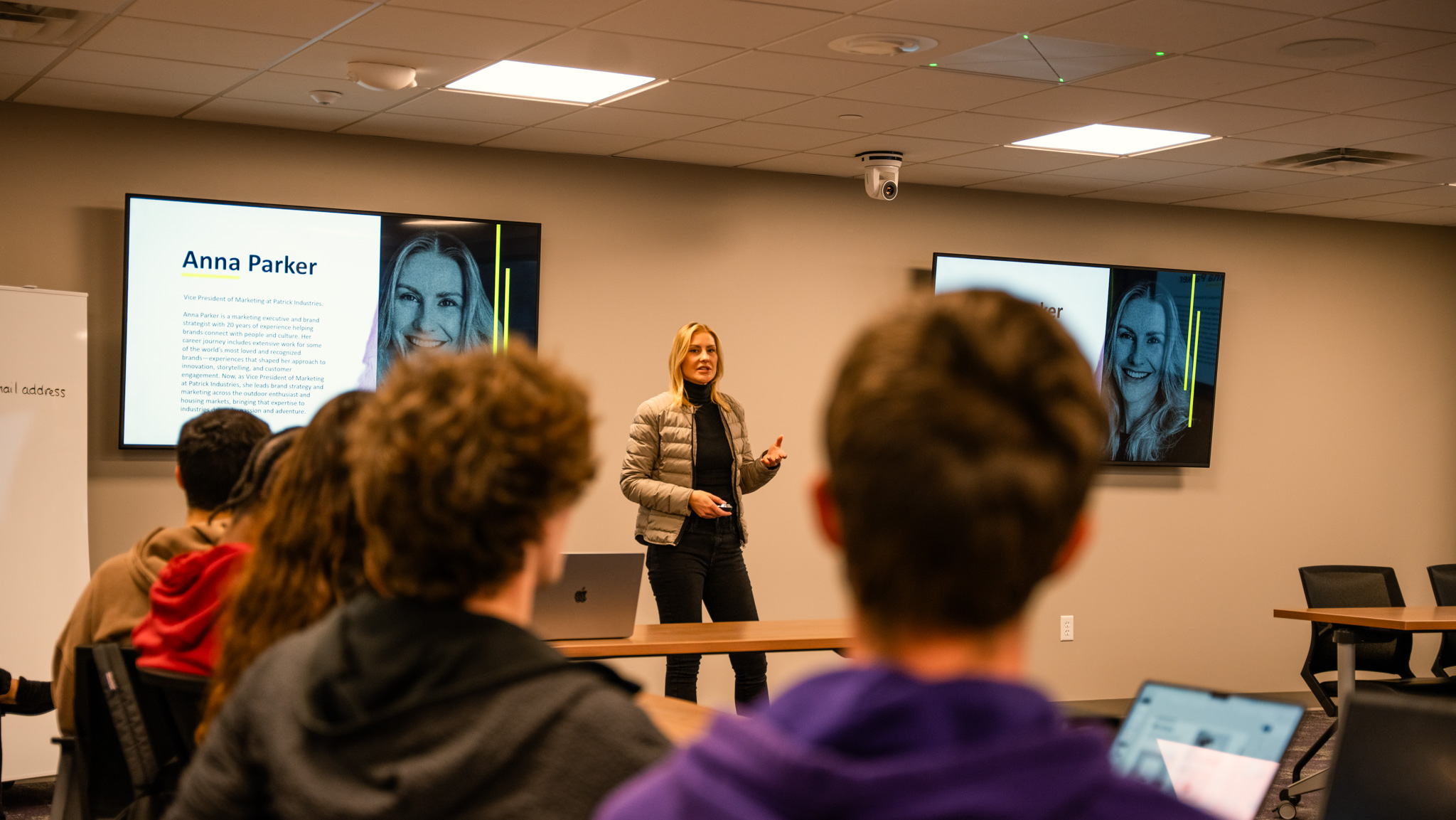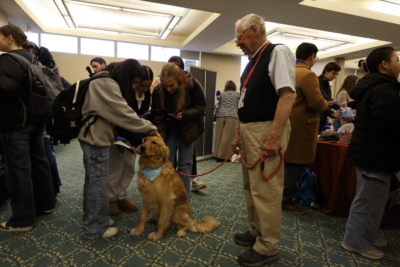For the first time, on Wednesday, March 19, Career Networks and the Academic Success Center hosted a workshop to strengthen portfolio-building skills, an event they hope to make an annual occurrence. David Kendall, director of Career Networks, said that a portfolio is incredibly important and that “this idea was born out of a necessity to have that conversation, and to put really dynamic, smart, great people in front of students to give them information that will be helpful.”
The workshop was titled “Showcase and Shine.” The guest speakers were Anna Parker, the vice president of marketing at Patrick Industries, and Jordan Kauffman and Rafael Barahona, partners at Lightbox design agency. The event was sponsored by Maple City Market and had around 30 students in attendance.Parker kicked off the presentations, recounting stories of her professional journey and the work that it often took to get to the position she wanted. Referencing one of the jobs she was at one time applying for, she said, “‘I don’t care what job I have to do, I don’t care if it pays nothing, I’ll sleep in the office. I’m going into this industry’ — and that’s exactly what I did.”
After that, Kauffman and Barahona gave a tour of their website and broke down what their strategies were in using it as their portfolio. In describing what they do, Kauffman said, “We’re makers. We make stuff. Specifically, we make stories for brands.”
They spoke at length about the recent rebranding of the Goshen Public Library and Lightbox’s role in that. They explained that a portfolio doesn’t only exist to show the final outcomes of your work, but rather should display the process you took to get there as well. A portfolio is what shows a potential client that you are the right person to work with.
Kendall echoed the sentiment: “I look at portfolios kind of like resumes.”
The presentation section of the workshop was followed up by a portion during which students were able to ask any questions they still had. This lasted just over 20 minutes, nearly half as long as the presentation section itself. The questions ranged from topics such as how to look professional for interviews when a suit and tie aren’t the standard, to how to match a portfolio to the company who is going to see it.
In response to a question about what Parker, as a professional, would be looking for in someone entering an internship or entry-level job, Parker said that she would look for the people who are dedicated and willing to put in the work. “‘I’m going to stay up all night teaching myself this,’ that’s what I hire for,” she said.
Parker went on to add words of encouragement. She said, “The thoughts and ideas and memories that are in front of you are not discounted because you’re younger than some of us are — remember that.”
Egypt Boyd, a first-year writing and film production double major, commented on her reasons for attending the workshop. She said, “I didn’t know all the ingredients that go into making a good portfolio, so I was intrigued to see if I could learn and see how this could work for me in the future.”
Boyd said that the workshop was mainly focused on digital design and marketing, but that it was nonetheless very informative. She also added that she would be sure to come back if they were to broaden the scope of topics and majors in the communication department that the workshop could apply to.
The final portion of the workshop was individual portfolio reviews with the presenters. Around six students showed portfolios to the presenters during this segment to receive feedback, which concluded the night.



